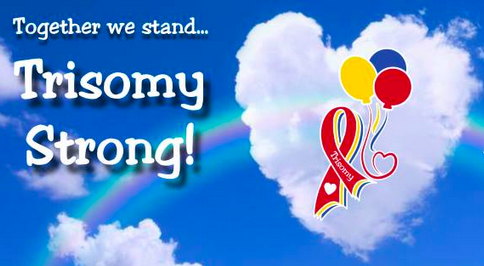A family reached out to BNA for support in an effort to bring home their son Daniel, diagnosed with Trisomy 18. This family was fighting for the right for Daniel to have life-saving surgery. BNA assisted by writing a testimonial letter to the ethics panel of the UK hospital. See the letter and Daniel’s story below.
Dear Sir or Madam:
My name is Tracy Winsor, and I’m the Co-Founder and Parent Program Director for a case management service which supports parents carrying to term following a prenatal diagnosis called Be Not Afraid, Inc. My organization serves families with medically complex babies internationally. We have welcomed almost 300 babies with varying diagnoses over the last thirteen years and successfully supported parents in obtaining the medical care they wanted for their children. It has been brought to my attention that the care of a child with a Trisomy 18 diagnosis will be discussed before your institution’s ethics committee. I wish to submit my experience for consideration on behalf of Daniel Hamu and his parents.
Increasingly while working with families of children with Trisomy 18, I have found more flexibility provided to parents who are capable of being reasonable, research-based advocates for their children. With the power of the internet and social media, parents like Daniel’s now have access to data and the life experiences of other parents whose children with Trisomy 18 have survived for years. Daniel’s parents are well-informed, and they see their sweet Daniel smiling and interacting with them. This is not a child lacking awareness or cognition. Daniel is a valued member of his family.
This year, our organization has seen 22% of our babies with diagnoses of trisomy 13 or 18 survive to discharge. Most go home with some supportive care such as nasogastric or other feeding tubes or tracheostomies and home vents. Their parents are thrilled to have the opportunity to get their babies home. The interventions needed to facilitate a discharge for Daniel are not burdensome to him or his family, and ethicists increasingly question the “quality of life” judgments often used to argue against such interventions. Consider the following quote from Dr. John Lantos printed in 2013 in Pediatrics:
Many clinicians object to life-sustaining treatment of infants with Trisomy 13 and 18. These views are based on two ideas. First, that these trisomies are uniformly fatal or lethal conditions. Second, that the burdens of treatment under these circumstances outweigh the benefits. These views are no longer tenable. Many infants with these trisomies survive for years. Many parents report that infants with trisomies have an acceptable quality of life and are valued members of families.
I can understand the complexity of these decisions as medical providers. Part of our job at Be Not Afraid is to help parents navigate the difficult decisions that don’t always result in bringing a baby home. Compassionate care through this type of grief is part of our expertise. It is, however, especially difficult for us to witness the grief parents experience when their child is not allowed a surgery that has been given to other children who are now still alive. The psychological damage of forever living with a question of “What if?” is difficult for parents to overcome.
I have been told that Daniel’s parents have provided studies and family stories of which his medical providers were not previously aware. Please let this new information inform your decisions. It is my hope that this information will be considered seriously, particularly as Daniel’s cardiologists have expressed the stability of his heart which could allow him to live at home for years with his family.
Mr. and Mrs. Hamu are completely committed to Daniel and completely capable of caring for him at home with a tracheostomy and even a home vent if needed. I encourage the ethics committee to support his parents in obtaining the medical care he needs to be discharged.
Thank you for your consideration.
Tracy L. Winsor, MPACo-Founder and Parent Program Director Be Not Afraid, Inc.
*Update as of 10/27/2021 Daniel was given a tracheostomy and is on track to be able to come home.


